I should have worn waterproof mascara
by Elsa Remak
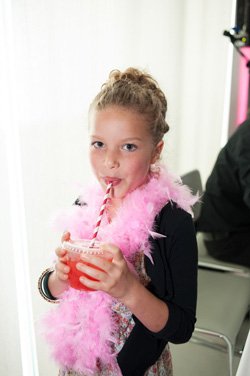
It was the great “pinkout” of the summer, complete with a pink carpet and boas galore. The tenth floor of the Spertus Institute on Chicago’s Michigan Avenue was transformed into a pre-teen girl’s version of paradise Wednesday for the premiere of the HBO documentary Miss You Can Do It. Many of us here at Easter Seals Headquarters left our cubicles behind for a day full of laughter, tears, and of course, lots of Justin Bieber music at the film’s premiere. It was a celebration of five incredible families, a brave filmmaker, and an inspirational beauty queen who combined efforts to create the Miss You Can Do It HBO documentary. This was a day where disabilities meant nothing and inner-beauty meant everything.
From the minute the young guests arrived, they were treated to a celebrity experience. The girls worked the pink carpet, sipped on fizzy mocktails, and had their pictures taken with the building’s stunning lake view as a backdrop. After an hour of mingling and delicious food (I’m still dreaming about the mini hot dogs) it was time for the film’s premiere.
For 70 minutes, the 200-person audience got a glimpse into the lives of eight amazing young girls. Any negative thoughts on pageants quickly disappeared as the audience learned about Abbey Curran, the Miss You Can Do It founder. Abbey Curran is the former Miss Iowa, and she is the first woman with a disability to compete in the Miss USA Pageant. Curran, who has cerebral palsy, created the Miss You Can Do It pageant to give other girls the chance to feel beautiful.

Filmmaker Ron Davis captured the joys and hardships families who have children with disabilities face. This screening was the first time the families saw the complete film. I should have worn waterproof mascara, because the tears were flowing. Some of the waterworks were out of heartache, but the majority were from joy.
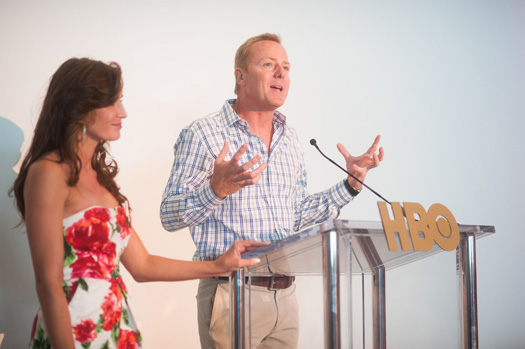
Miss You Can Do It contains so many powerful messages about beauty and disabilities that I found myself smiling for hours after the film was over. Some of us at Easter Seals are already planning our trip to this year’s July pageant.
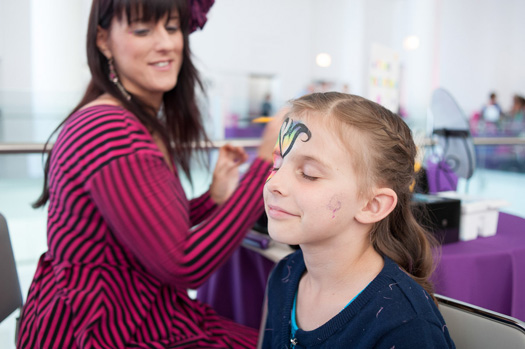
The celebrity treatment continued after the film: the girls got to rotate between booths for hair, nails, and facepaint. I felt star-struck approaching the girls after the film. One of the film’s stars, the hilarious Ali Shanks, complimented my playlist for the event, but mentioned that I missed some of Bieber’s good songs (duly noted).
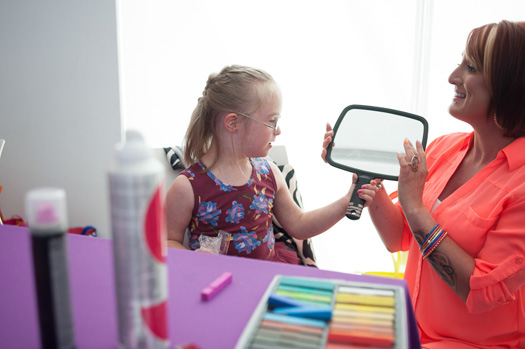
As I looked at the girls’ smiling faces I realized, for the millionth time, how lucky I am to have this summer internship at Easter Seals. This event was life-changing — not only for the stars of the film, but for me too. These happy young girls and their courageous families will continue to inspire me long after my internship is over.
I encourage EVERYONE to tune in for the HBO premiere of Miss You Can Do It on June 24th. This film will educate and inspire people of all ages. This is not some “toddlers and tiaras” documentary — it’s a 70 minute celebration. These girls have proven that they really can do it.







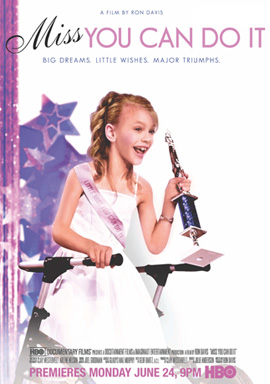
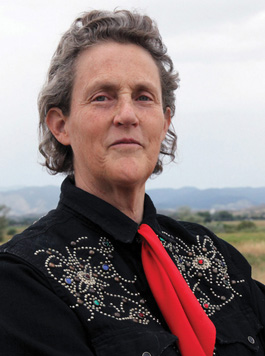 Recently, Temple Grandin was on Katie Couric’s show
Recently, Temple Grandin was on Katie Couric’s show 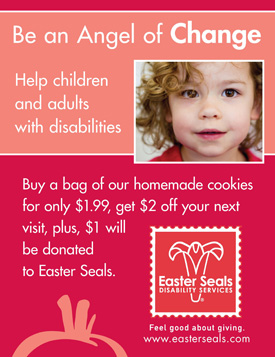 Your calendar says the first official day of summer isn’t until June 21, but the first sign of summer always comes early here at Easter Seals with the launch of
Your calendar says the first official day of summer isn’t until June 21, but the first sign of summer always comes early here at Easter Seals with the launch of 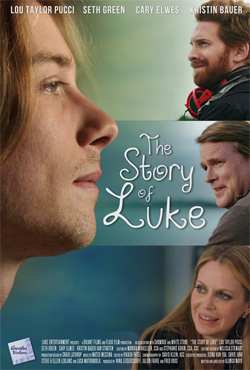
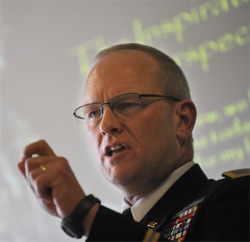 Colonel David W. Sutherland founded the Dixon Center for Military and Veterans Community Services at Easter Seals. He actively contributes to numerous national veteran and military family committees and boards. COL Sutherland speaks in communities at universities, businesses and conferences around the country as a vocal advocate and leader for transformational change. He is a vocal advocate for our service members, military veterans, their families, and the families of our fallen.
Colonel David W. Sutherland founded the Dixon Center for Military and Veterans Community Services at Easter Seals. He actively contributes to numerous national veteran and military family committees and boards. COL Sutherland speaks in communities at universities, businesses and conferences around the country as a vocal advocate and leader for transformational change. He is a vocal advocate for our service members, military veterans, their families, and the families of our fallen.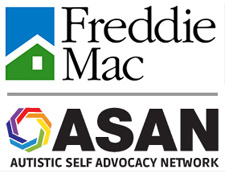 Internships are a great way to gain professional experience and build your resume to land future employment opportunities.
Internships are a great way to gain professional experience and build your resume to land future employment opportunities. 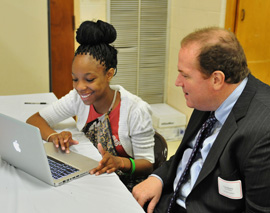 Easter Seals has been working with Comcast NBC Universal and the
Easter Seals has been working with Comcast NBC Universal and the